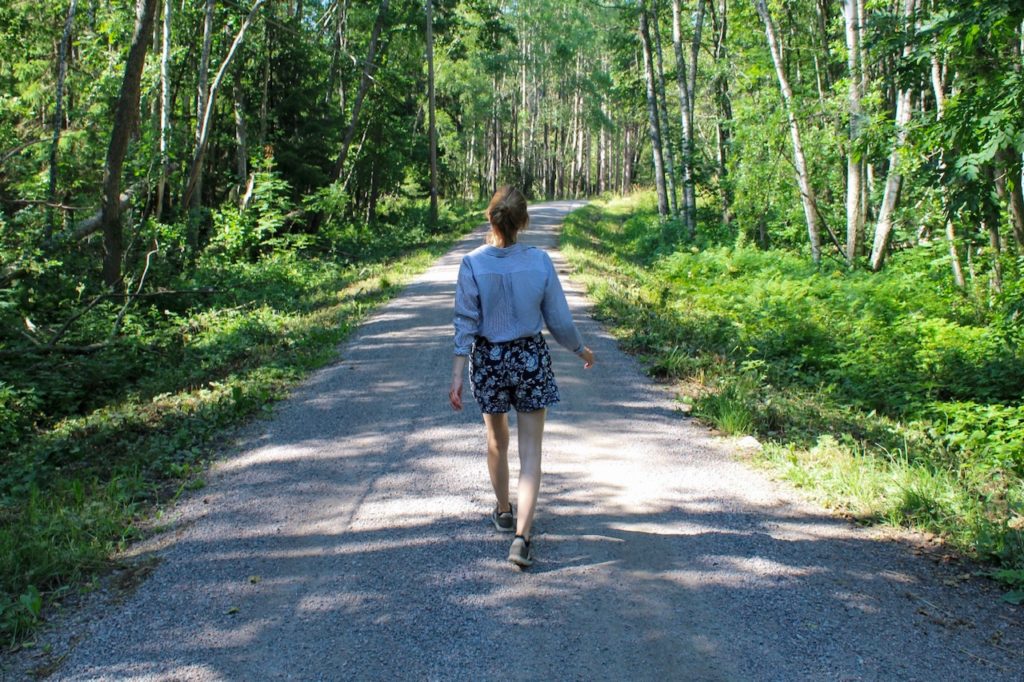Are you suffering from anxiety about climate change? Is trying to live consciously stressing you out? Or is ‘ecological grief’ making you depressed? You’re not alone. The climate crisis is increasingly affecting the mental health of people around the world.
Seeing how our world is being destroyed whilst world leaders and many with them aren’t doing anything to cut carbon emissions is most definitely something to be stressed about. Seeing your home and life being directly affected by global warming is next level anxiety and something the people of Greenland are currently living through. A study shows they are experiencing ecological grief as they are traumatised by the way climate change is affecting their traditional way of life.
An increasing eco-anxiety
As I’ve followed a large number of, often young, often female, green living individuals on social media and blogs for quite a while now I’ve seen various responses to various issues, but I’m increasingly seeing mental health issues emerging in response to the climate crisis. Young women who are feeling overwhelmed by the sustainability lifestyle, trying to be good and do good. Either feeling like they’re failing, or feeling like they can’t enjoy life because they’ve set up too many rules for themselves in the name of the planet. Or feeling like they’re being judged by others that don’t think they’re ‘green enough’.
I’m personally going through various stages and levels of eco-anxiety. Some days I’m awfully pessimistic and genuinely worried about the hardship so many of us will endure due to the climate changing over the next few decades. Other days I see hope when I think about the younger generation that want to change the ways in which things are currently run by wealthy, white, middle-aged men. And on some days I find it hard to know whether any of the small changes I’m trying to make are in fact making a difference.
American research shows that “people’s anxiety and distress about the implications of climate change are undermining mental health and wellbeing“. This is to a larger extent affecting people who are directly affected by climate change but eco-anxiety is also experienced by people across the globe who are feeling powerless. Many are having to go to therapy for it, which however, in this piece, is being highlighted as a beneficial method of working through your eco-anxiety. Psychology professor Susan M Koger argues in the same piece that it’s unhelpful to be paralysed by fear and she’s also talking about guilt as an unhelpful emotion as it’s not motivating.
Dealing with our eco-anxiety is essential, to feel motivated to create change, but also to find a sustainable approach to our own wellbeing. No one is perfect and trying to be perfect is never going to be sustainable but doing our bit and living in a way that we can actually sustain, might be.

Finding your own conscious journey
I do believe that we can all make a difference. That we can inspire others. that we can improve our own communities, and that we can have an effect on brands and companies by raising our voices and demanding change. But we, as individuals, can’t do it all. Individual changes are important but systemic change is most definitely needed to combat climate change. Companies and governments will have to do more to change regulations and to change the way we do business and make the world work.
Putting the climate guilt towards big companies and world leaders might have an effect but putting too much of the guilt on ourselves won’t do us any good. Spending time feeling guilty because you’re not doing something planet-positive all day every day, or putting guilt on others on Instagram for not doing so just isn’t going help.
I’ve previously highlighted the importance of finding your own conscious journey and I stick to this. I believe we have to find our own way of living sustainably for it to be truly sustainable. Otherwise, we might feel we’re sacrificing too much, or we’ll feel we can’t do it or that we’re not doing enough, and it won’t last. It’s important to believe that our individual changes and actions can make a difference, but this also needs to be put into a bigger picture, where we can’t take on all of the responsibility or guilt.
Consider what can you do to make the greatest positive impact? How can you change your lifestyle to be more conscious of the planet, whilst also being conscious of your own wellbeing? To keep you going, to keep you motivated, and for you to feel that you can continue making a difference.

